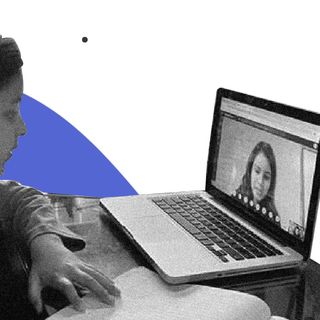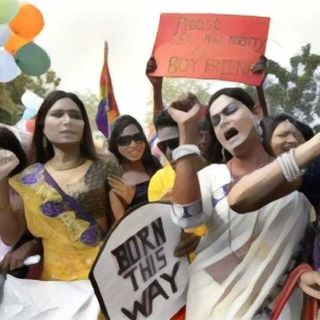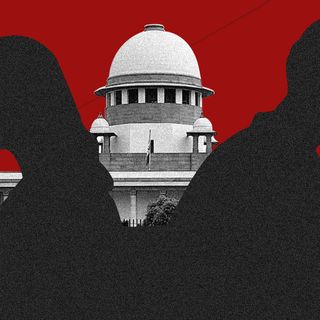Nazima*, clad in a black scarf over a brown khandress, clutches a cloth bag with medicines close to her chest. When asked whose prescription it is, she breaks down. “Woe to the day when these lockdowns began. My younger brother, who is my only family, slipped into depression because of the August 5 restrictions, and now the Covid lockdown prevents me from helping him. Be chas besath gaimch. Mein chune kehen wane panun (I am completely bereft now. I have nothing left now that I can call my own).”
After the abrogation of Article 370 and 35-A in August last year, shops and business establishments shut down in Kashmir. The restrictions continued for five months, particularly affecting daily wagers, businessmen, and the marginalized. Now, with the second lockdown because of Covid19, their condition has been further exacerbated.
Of these people, the transgender community is one of the worst hit in Kashmir. The marginalized community in the valley depends largely on arranging marriages (locally known as mazemyaraz), and singing and dancing at occasions, for their livelihood.
“I couldn’t contribute [financially] as all weddings and engagements scheduled during the summer months were deferred or cancelled. We were literally on the verge of starvation. My brother kept thinking about our situation and ended up in severe depression,” Nazima said.
Nazima’s problems have increased manifold since the pandemic began. “Earlier, I could at least move out and ask someone for help. This time, the situation is different. I need money for my brother’s treatment. God knows, how helpless I feel when I go to meet him at the hospital. Besides, I have no documents through which I can get an access to free healthcare, ration, or some kind of stipend. Life is nothing but a tale of miseries for me. I wish death comes soon and takes me away,” she says.
According to the official figures maintained by Peoples Social and Cultural Society (PSCS), there are around 3,000 transgender people in the valley. PSCS is the only non-government organization working for the upliftment of the community in the region.
Related on The Swaddle:
India’s Internet Shutdown in J&K Is Now the Longest Imposed in Any Democracy
Chairman of PSCS, Rafi Razaqi, says that the already discriminated group has been rendered even more marginalized because of the double jolt of disease and social distancing. He pointed out that with no resources to go to private clinics for check-ups and widespread discrimination in government hospitals, the community is more susceptible to the virus.
“Free medical services for the community has been a failure on ground. It is high time the government wakes up to their plight and delivers help at the earliest,” he says. According to Razaqi, they are facing a range of issues, including financial and emotional distress. “Besides, they have to face phobia and stigma in healthcare, along with a lack of adequate documentation or identity proof to avail benefits,” he said.
Adding to their plight is a housing crisis, with most of them being forced to live in rented accommodation. “Many of the transgender people who came to our NGO for help had been evicted by their landlords as they failed to pay their rents amid the lockdown,” Razaqi reports.
Naseer Ahmad* has a similar tale. Although Naseer’s face is hidden behind a mask, his kohl-smudged eyes look tired and give the impression of someone who just needs some rest. He lives with his critically ill mother in a rented building. He is under crushing debt and the pandemic has worsened his situation because, like Nazima, he has not been able to earn a single penny since last August.
“My mother suffers from Chronic Obstructive Pulmonary Disease and remains bed-ridden for the last two years. I exhausted all my savings on her medical expenses. Now… another wave of misery has hit us. This time, it came as a pandemic that shows no signs of relenting,” he said.
Naseer has been threatened with eviction by his landlord if he’s unable to pay the rent for March and April. “Where shall I get the monthly rent of 4000 rupees, which has now doubled to 8000? Sometimes, I feel like taking my life, but then I think of my mother.”
Related on The Swaddle:
Odisha HRC Grants Ration Relief To Sex Workers Under Covid19 Lockdown
Alienated from society during the best of times, the transgender community finds itself completely neglected and alone now, even as a pandemic rages throughout the world. “This is a time when parents and siblings should worry about their children’s safety. But what is most upsetting is that my family care only about their reputation even at this point and have not called me,” says Rani*. “I have been completely on my own.”
She pointed out that in Delhi and other states, transgender people can at least go in toli-badhai (in their respective groups) and ask for money and food. “Here, in the valley, we don’t have such traditions. Our fate is only to starve and die.”
“We are ostracized by our own and world follows the same approach. What are we supposed to do?” Naseer adds. “We don’t ask for luxuries. Just a single room of our own, a small monthly stipend that can at least pay the electricity bills and access to free ration and healthcare. These are our only demands,” Rani says.
Associate Professor at the Department of Social Work, University of Kashmir, Dr. Waqar Amin, said that the concept of social distancing might be new to the community, but its meaning had been felt and imbibed in every trans person’s mind and soul from much before the pandemic.
“Society has always maintained a decent distance – both social and physical – from transpersons. In these times, with the virus tightening its grip, the actual distance between society and the community widens further,” he said.
*Some names in this article have been changed for confidentiality.




